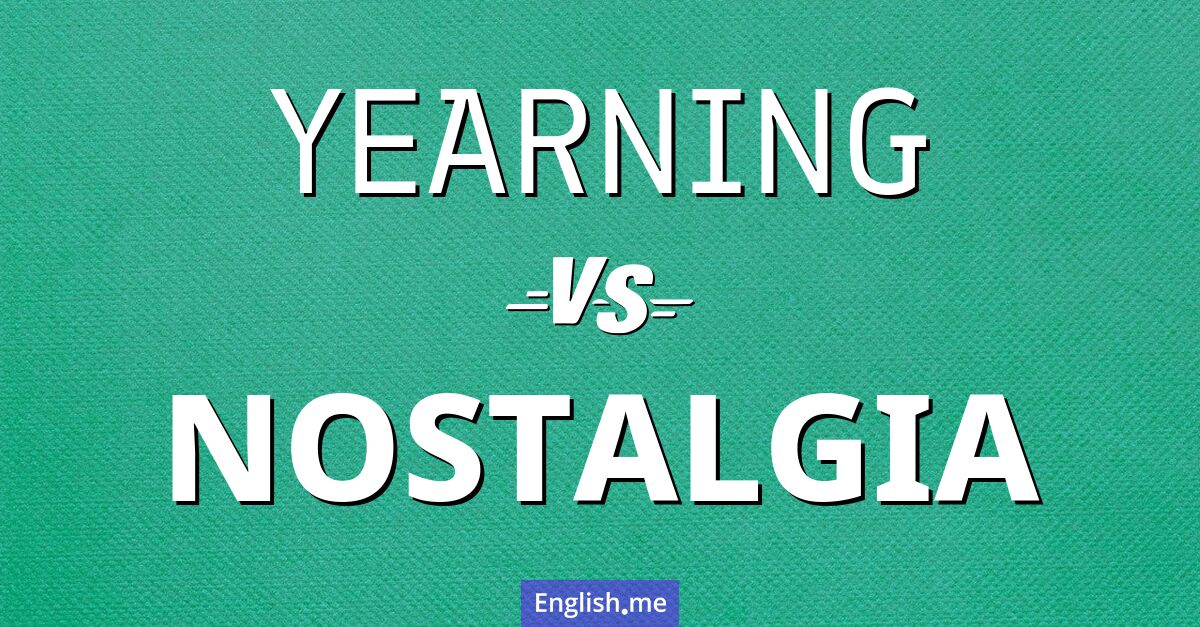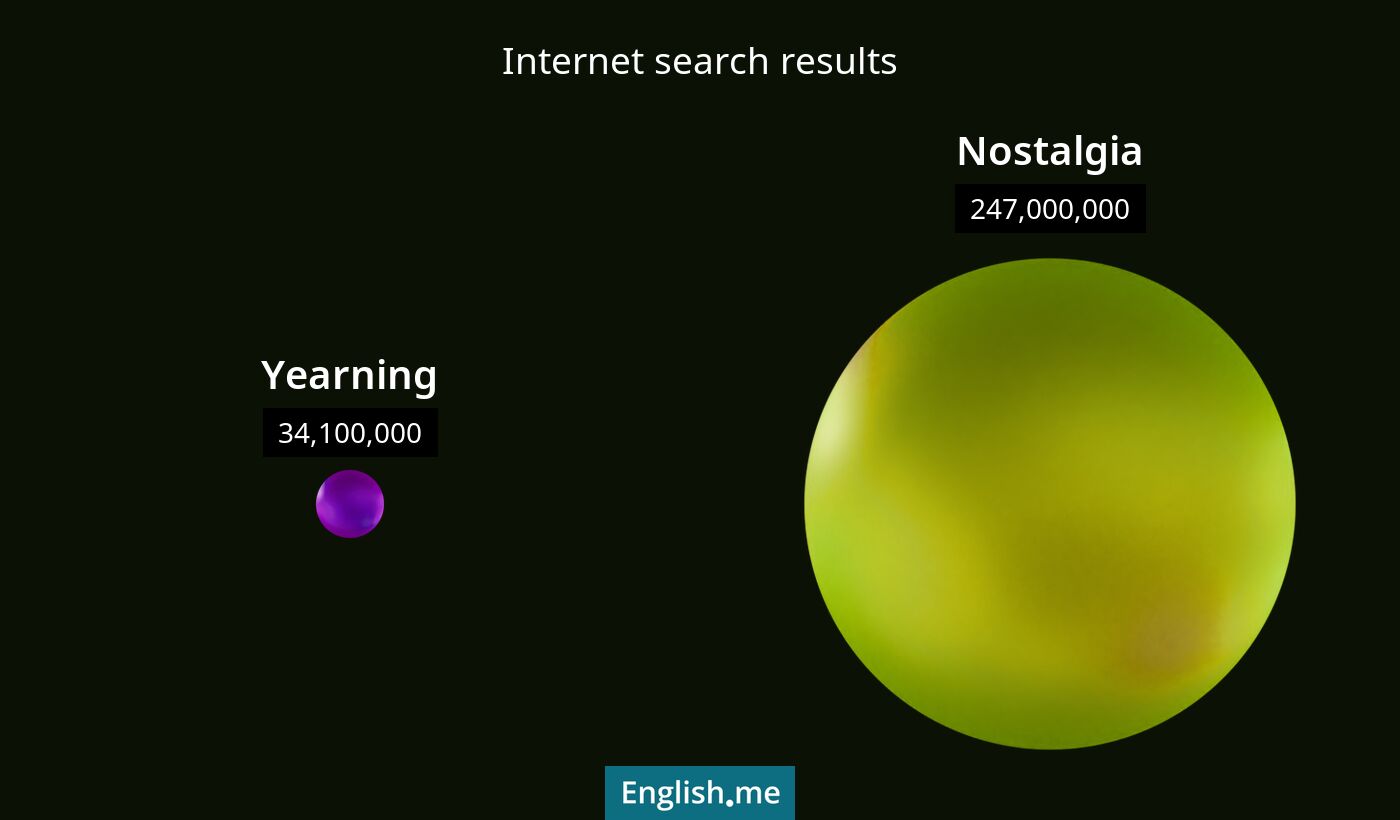"Yearning" vs. "nostalgia": a journey through emotions
Reviewed and edited by  Lloyd Cooper 31/10/2024, 16:27
Lloyd Cooper 31/10/2024, 16:27
English.me team member

 What is similar?
What is similar?
Both "yearning" and "nostalgia" involve a deep emotional longing and desire. They often relate to feelings about something that is unattainable or has been lost.
 What is different?
What is different?
While "yearning" is a general intense longing for something, "nostalgia" specifically refers to a sentimental longing or wistful affection for the past or a particular period in one's life.
 Which one is more common?
Which one is more common?

 Examples of usage
Examples of usage
Yearning- She felt a deep yearning for adventure as she looked out at the ocean.
- His heart was filled with a yearning for the peace he once knew.
- There was a palpable yearning in his voice as he spoke of his dreams.
- The old photographs filled her with nostalgia for her childhood.
- Listening to that song gave him a sense of nostalgia for the early 2000s.
- She couldn't help but feel nostalgia as she visited her hometown after many years.

 English
English español
español française
française italiano
italiano deutsche
deutsche 日本語
日本語 polski
polski česky
česky svenska
svenska Türkçe
Türkçe Nederlands
Nederlands